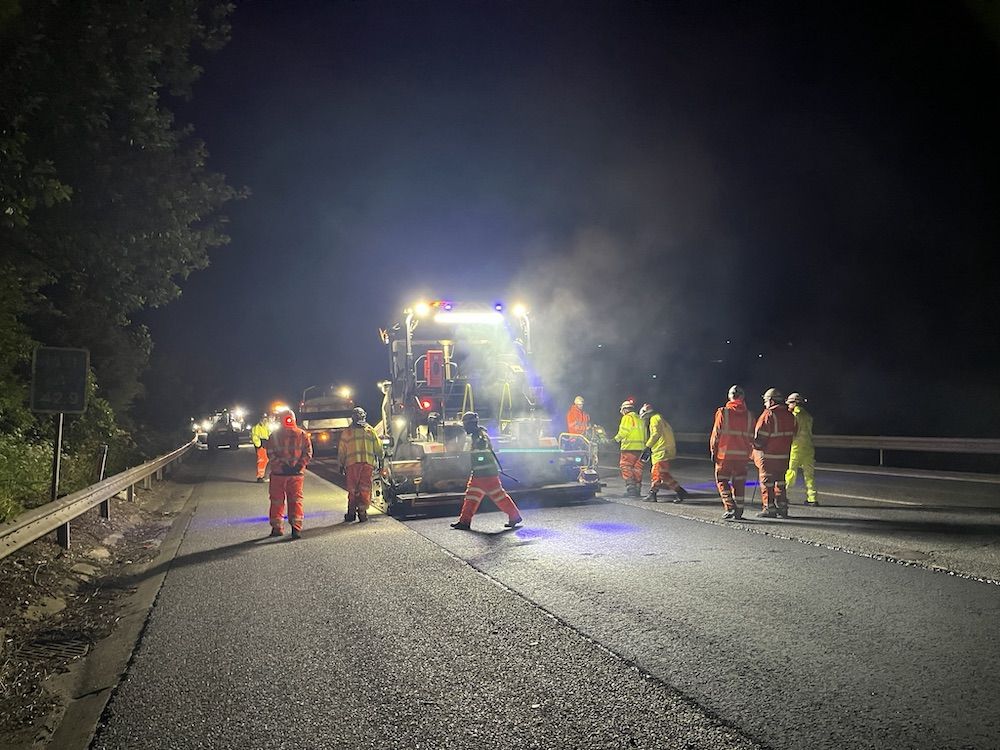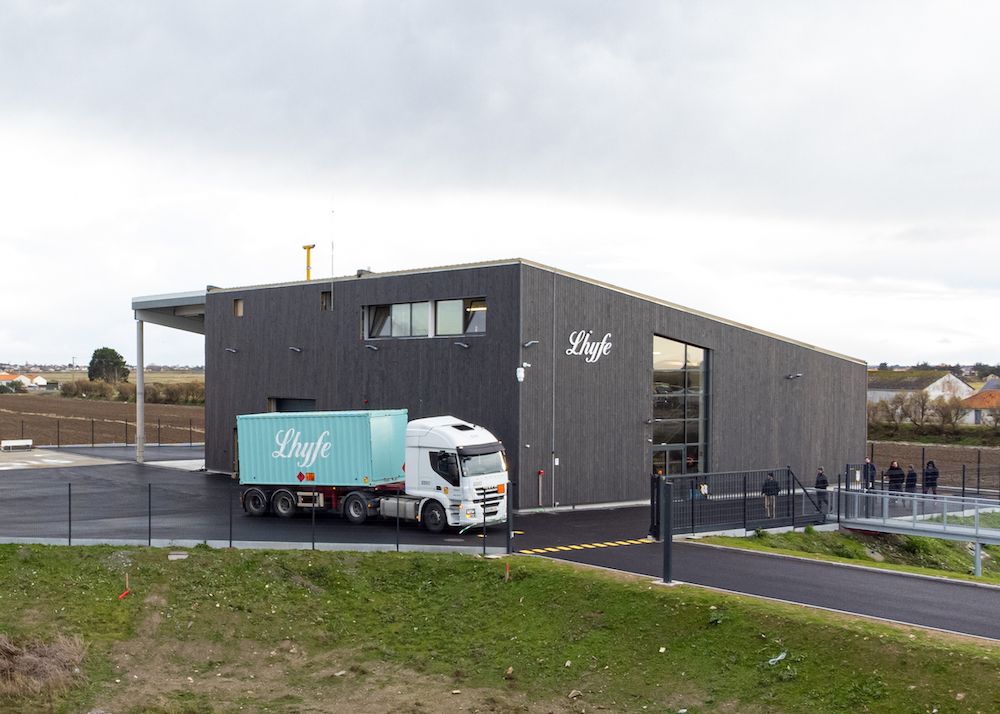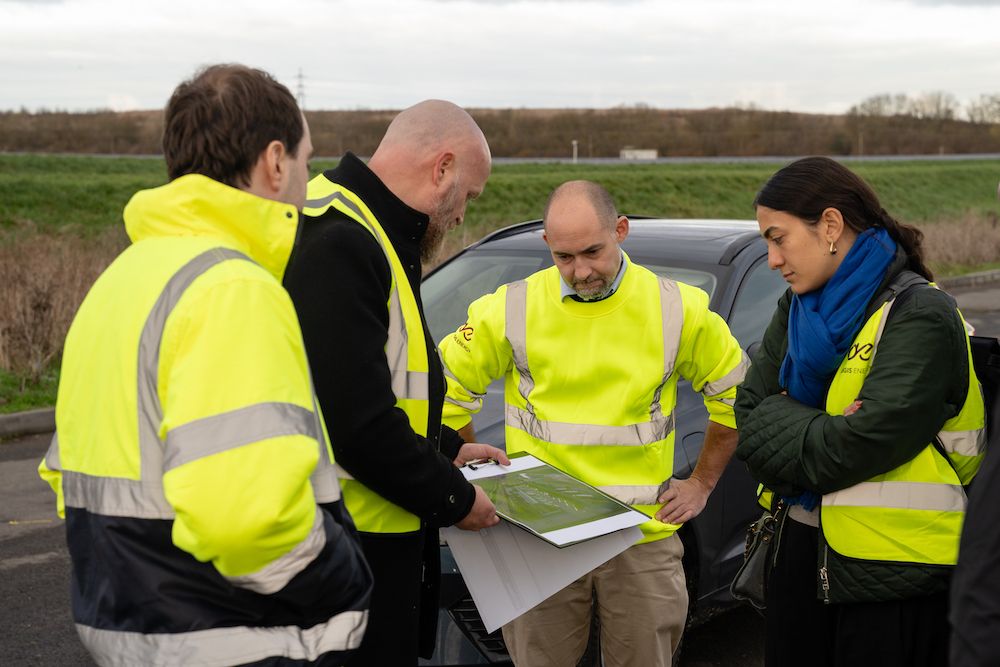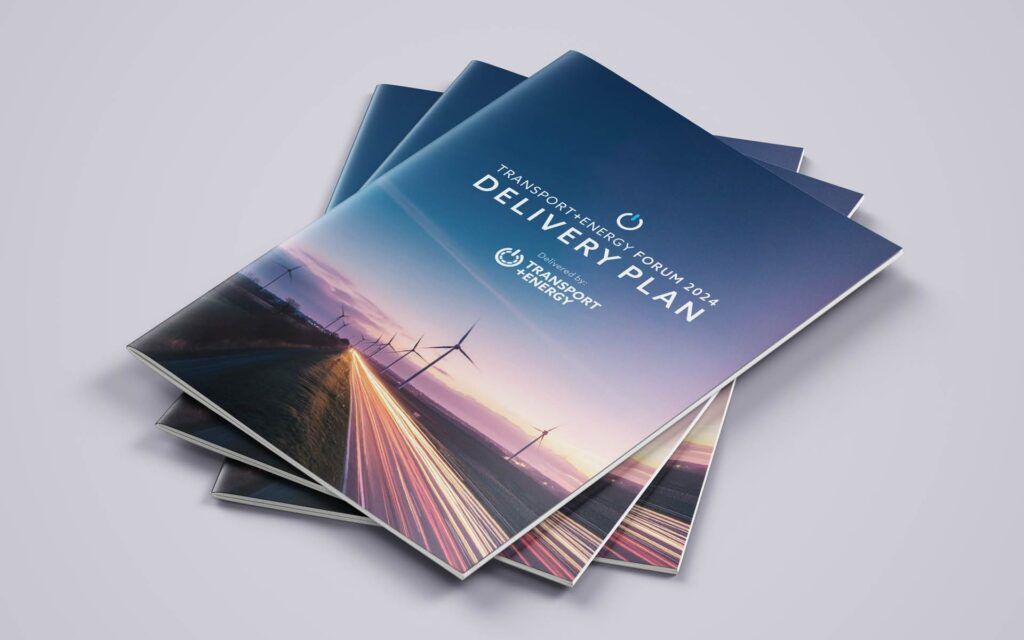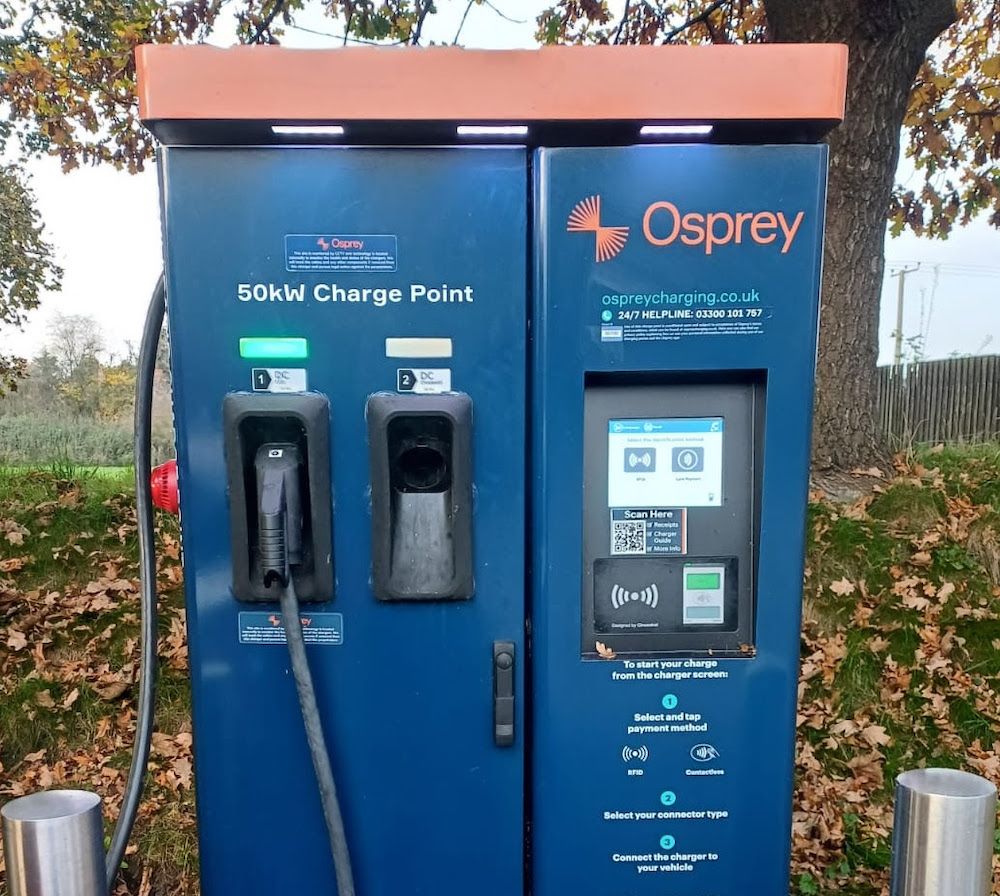A new carbon-negative aggregate is being trialled on a stretch of motorway as part of National Highways’ hunt for new and innovative solutions to help reduce its carbon footprint.
The ‘next generation’ construction material was identified in a competition run by National Highways which offered funding for projects that would help meet targets for net zero carbon in maintenance and construction.
Four firms received up to £80,000 each to make their vision a reality and now the first of those – Seaham-based company Low Carbon Materials – has been able to trial their ACLA carbon-negative aggregate on a National Highways’ road for the first time.
With the support of both Skanska and Tarmac, the trial is taking place on the northbound carriageway of the M11 in Essex. A test strip of asphalt concrete binder course containing LCM’s product has been laid alongside a control test strip containing 100% conventional aggregate.
It is hoped the carbon-negative aggregate will make a significant impact on National Highways carbon emissions with minimal change to standard procedures.
National Highways launched the Accelerating Low Carbon Innovation competition, in collaboration with Connected Places Catapult, last year.
An innovation showcase was held at The Barbican in London last month (June) which highlighted seven trials of technologies and products that have been carried out in the past 18 months.
The other three firms that made it through to the final stage of the Accelerating Low Carbon Innovation programme and are continuing to develop their projects include a bitumen-like substance from waste tyres which would be useful for road construction; one to provide highly durable, maintenance-free fencing material that turns mixed low-grade plastic into low-carbon infrastructure; and one to develop smart fibre reinforced polymer bridge beams that incorporate a novel optical fibre.
Dr Joanna White, National Highways’ Research, Development and Innovation Director, said:
“Collaboration is the key to innovation so we are grateful for the support of our supply chain partners Skanska and Tarmac who have helped make that happen.
“Testing the asphalt in real conditions on a heavily trafficked motorway, under close scrutiny, will be far more effective in proving the durability of the product and hopefully its success.”
Low Carbon Materials Chief Executive Officer, Natasha Boulding, said:
“A motorway trial represents a significant step towards lower carbon roads and widespread adoption. ACLA offers a simple and scalable solution that can be readily adopted by National Highways in their pursuit of their net zero targets.”
Skanska Chief Engineer Paul Cole said:
“The National Highways’ Accelerating Low Carbon Innovation programme has exceeded my expectations. The programme matched Tier 1 contractor Skanska and existing supply chain partner, Tarmac with SME, Low Carbon Materials.
“Subsequently, a formidable collaborative working relationship was formed. The challenge was to responsibly bring LCM’s new product to market as quickly as possible. The programme has been very successful and National Highways’ Safety, Engineering and Standards teams have supported it throughout.”
Tim Smith, senior technical manager (South East) at Tarmac, said:
“Working towards net zero is a priority for Tarmac and our clients so we’re always looking to support the development of new and innovative products to help meet our ambitious targets.
“Fast-tracking this new material to a trial on the strategic network in record time as part of National Highway’s innovation programme represents another important example of how our industry can rapidly develop and trial innovations, getting them from the laboratory and out onto the road network.”
Connected Places Catapult’s Executive Director of SME Development and Academic Engagement, Alex Weedon said:
“I am delighted for Low Carbon Materials in getting the chance to trial its innovative aggregate product on a busy stretch of the National Highways road network.
“Innovative companies on the programme have been supported by the Catapult with investment, business and marketing support; and it is great to see each of them develop their ideas and make good progress towards getting their innovations to be used in real world environments.”
Image courtesy of National Highways



